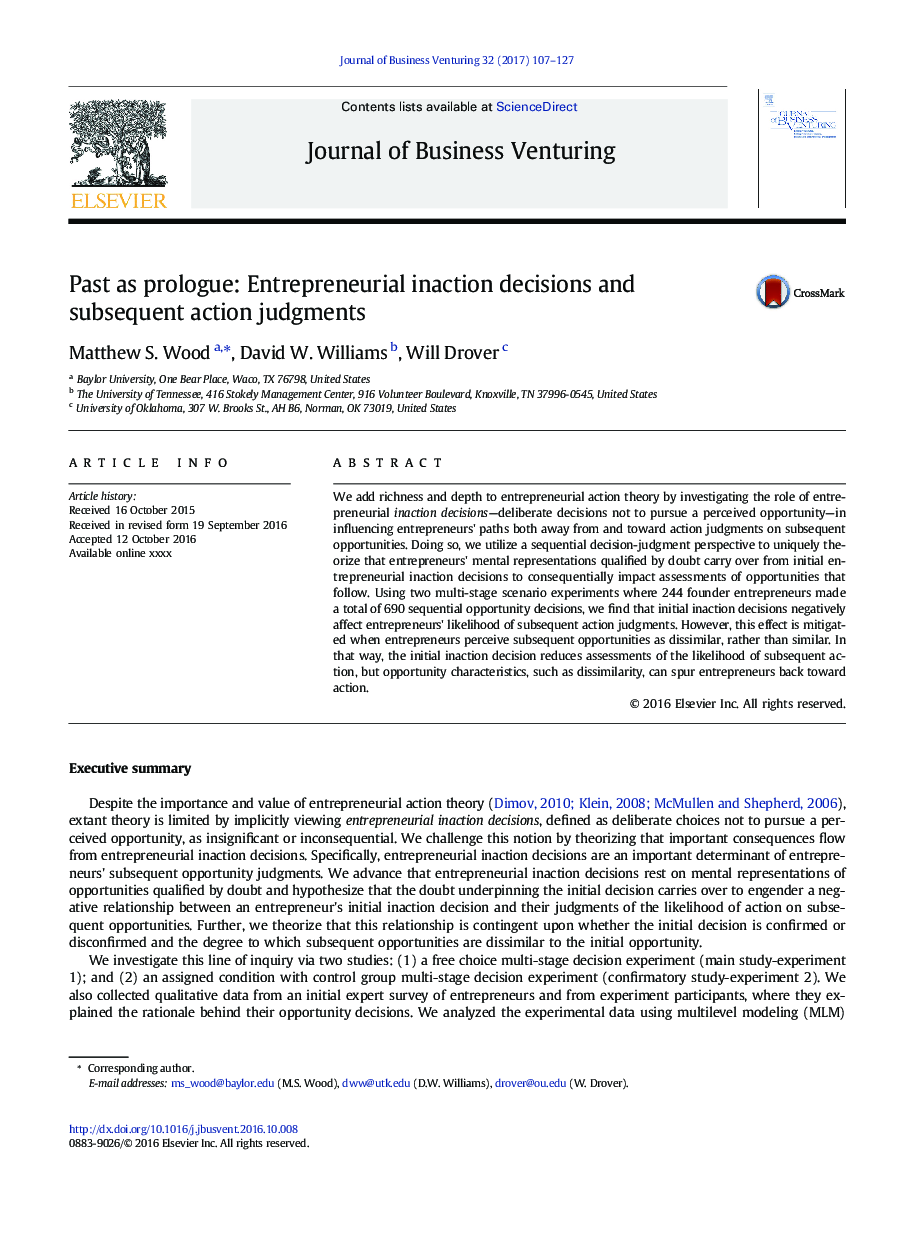| Article ID | Journal | Published Year | Pages | File Type |
|---|---|---|---|---|
| 5109975 | Journal of Business Venturing | 2017 | 21 Pages |
Abstract
We add richness and depth to entrepreneurial action theory by investigating the role of entrepreneurial inaction decisions-deliberate decisions not to pursue a perceived opportunity-in influencing entrepreneurs' paths both away from and toward action judgments on subsequent opportunities. Doing so, we utilize a sequential decision-judgment perspective to uniquely theorize that entrepreneurs' mental representations qualified by doubt carry over from initial entrepreneurial inaction decisions to consequentially impact assessments of opportunities that follow. Using two multi-stage scenario experiments where 244 founder entrepreneurs made a total of 690 sequential opportunity decisions, we find that initial inaction decisions negatively affect entrepreneurs' likelihood of subsequent action judgments. However, this effect is mitigated when entrepreneurs perceive subsequent opportunities as dissimilar, rather than similar. In that way, the initial inaction decision reduces assessments of the likelihood of subsequent action, but opportunity characteristics, such as dissimilarity, can spur entrepreneurs back toward action.
Related Topics
Social Sciences and Humanities
Business, Management and Accounting
Business and International Management
Authors
Matthew S. Wood, David W. Williams, Will Drover,
